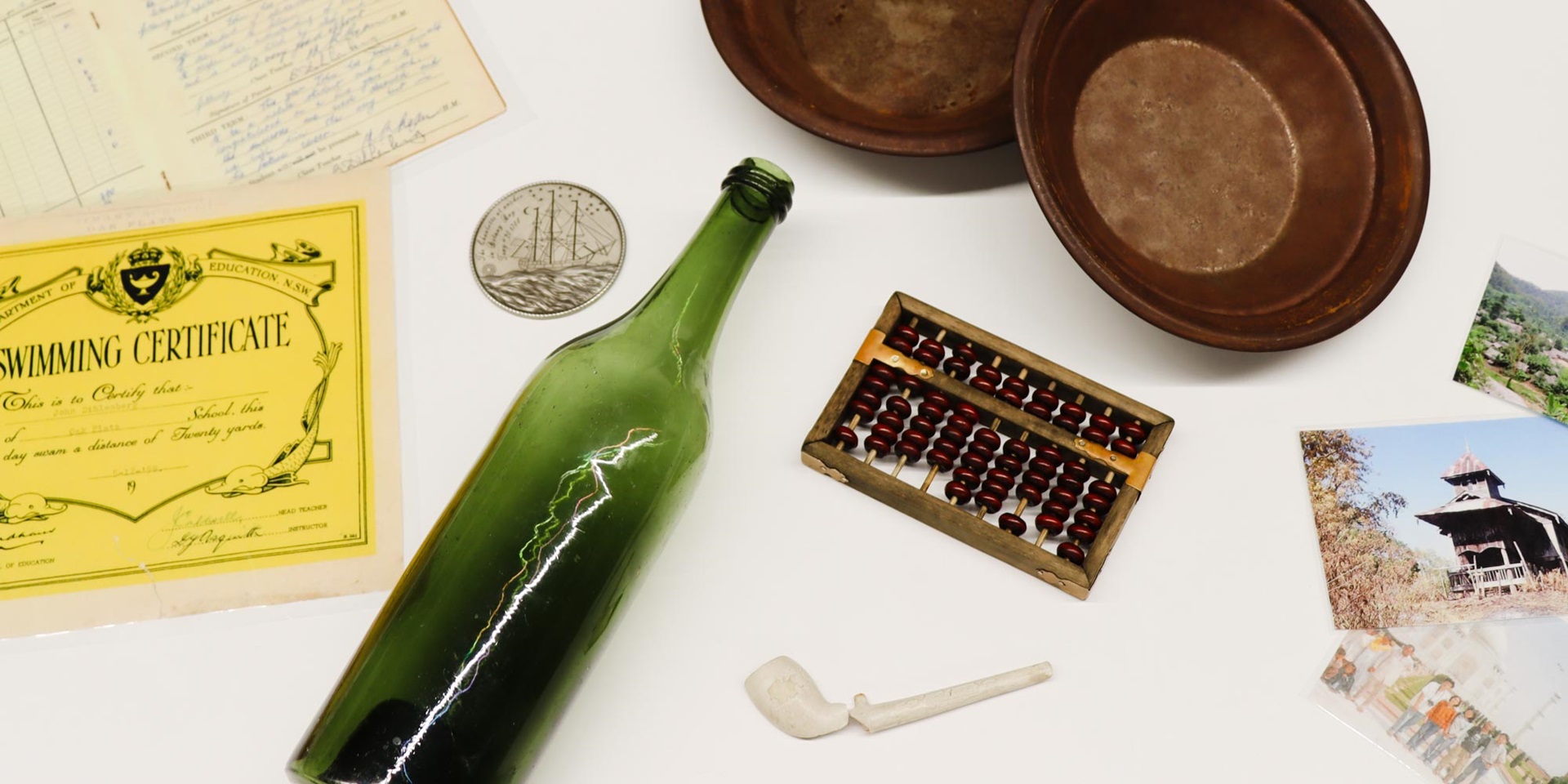Program structure
The Australian National Maritime Museum offers Australian Curriculum linked programs designed to tell stories of those who have left their homeland to settle in Australia. They highlight the positive contribution immigration and migrants have made to Australia and its society through stories of overcoming hardships to build a new life.
Three separate programs are available and teachers can choose one or a combination to suit their students’ needs.
- Museum Memories 1750-present
Museum tour highlighting migration stories throughout time.
- Stories and Suitcases 1788- 1900*
Hands-on Workshop examining objects belonging to migrants from the period to help students understand their stories.
- Documents and Dialogue 1901-present*
Hand-on workshop investigation, using oral histories and primary source documents to help student comprehension of migrants’ experiences.
The workshops are constructed to encourage students to delve into a real migrant’s experiences through objects, oral histories and primary source documents then think of a way to respectfully present the story to the other members of the group.
Combine programs for half day in-depth migration experience
Duration: 90 minute per session for an Educator led workshop
Cost:
- 1 program: $225 per group with a maximum of 15 students
- 2 programs: $300 per group with a maximum of 15 students
- 3 programs $350 per group with a maximum of 15 students
Ratio: A supervisor/student ratio of 1:15 applies.
Teachers and supervising adults visit FREE of charge within the ratios specified in Plan Your School Visit.
One or more of the following programs can be selected:
- Museum Memories 1750-present
- Stories and Suitcases 1788- 1900
- Documents and Dialogue 1901-present
View Teacher Resources for this excursion
Curriculum References
Year 5
The curriculum in this year provides a study of colonial Australia in the 1800s. Students learn about the reasons for the founding of British colonies in Australia and the impact of a development or event on one Australian colony. They examine what life was like for different groups of people in the colonial period, and explore the reasons for their actions. They examine early migration, settlement patterns, people and their contributions, significant events, and political and economic developments. Students are also introduced to the concept of sources as they analyse sources to compare information and points of view in the past and present.
- Reasons (economic, political and social) for the establishment of British colonies in Australia after 1800 (ACHASSK106 )
- The reasons people migrated to Australia and the experiences and contributions of a particular migrant group within a colony (ACHASSK109)
Year 6
The Year 6 curriculum moves from colonial Australia to the development of Australia as a nation, particularly after 1900.
Students learn about the way of life of people who migrated to Australia since Federation and their contributions to Australia’s economic and social development.
- Stories of groups of people who migrated to Australia since Federation (including from ONE country of the Asia region) and reasons they migrated (ACHASSK136)
Stage 3 Outcomes
A student:
HT3-1 describes and explains the significance of people, groups, places and events to the development of Australia
HT3-2 describes and explains different experiences of people living in Australia over time
HT3-3 identifies change and continuity and describes the causes and effects of change on Australian society
HT3-4 describes and explains the struggles for rights and freedoms in Australia, including Aboriginal and Torres Strait Islander peoples
HT3-5 applies a variety of skills of historical inquiry and communication
Content for Stage 3
The Australian colonies
This topic provides a study of colonial Australia in the 1800s. Students look at the founding of British colonies and the development of a colony. They learn about what life was like for different groups in the colonial period.
Australia as a nation
This topic moves from colonial Australia to the development of Australia as a nation, particularly after 1901... Students learn about the way of life of people who migrated to Australia and their contributions to Australia's economic and social development.
Historical Concepts taught throughout Stage 3:
- Empathetic understanding: an understanding of another's point of view, way of life and decisions made in a different time, eg differing attitudes and experiences of living in an Australian colony; understanding the experiences of Aboriginal and Torres Strait Islanders, women and migrants throughout the twentieth century.
- Significance: the importance of an event, development or individual/group, eg determining the importance (significance) of various peoples' contributions to the development of a colony.
Historical Skills taught throughout Stage 3:
- Empathetic understanding
- explain why the behaviour and attitudes of people from the past may differ from today
- Explanation and communication
- use a range of communication forms (oral, written, graphic) and digital technologies. (ACHHS106, ACHHS125)
